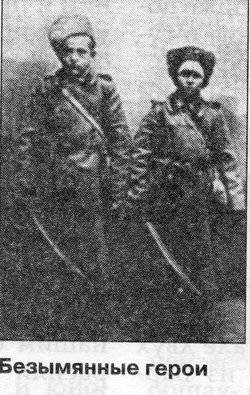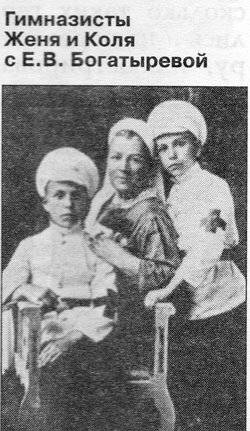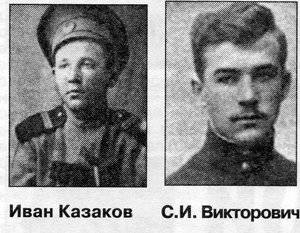Children of the First World War
 Since time immemorial, children have been actively involved in wars and battles, helping adult men. Examples of this in stories lots of. In the Middle Ages, young pages and squires looked after weapons and armor of the knights. In the eighteenth century, eight-year-old boys reloaded guns on warships. Until the nineteenth century, in the armies of different countries, boys who reached the age of ten could serve as drummers. In the Russian army, “sons” or “pupils” of the regiment were no exception. In the eighteenth century in navy minor midshipmen served, and drummers in the army.
Since time immemorial, children have been actively involved in wars and battles, helping adult men. Examples of this in stories lots of. In the Middle Ages, young pages and squires looked after weapons and armor of the knights. In the eighteenth century, eight-year-old boys reloaded guns on warships. Until the nineteenth century, in the armies of different countries, boys who reached the age of ten could serve as drummers. In the Russian army, “sons” or “pupils” of the regiment were no exception. In the eighteenth century in navy minor midshipmen served, and drummers in the army.When World War I began, children's patriotism encompassed all sectors of society, all educational institutions of the state. Pupils of schools, seminaries, gymnasiums, cadet corps asked their leaders to let them go to fight with the enemy.
Participation in the war of adolescents and children, boys and girls recorded in many documents. The weekly magazine of those years called Iskra regularly published materials on young defenders of the Motherland. The military chronicle has kept a large number of reports and reports on young volunteers and their exploits.
 The desire to be at the front forced to forget about everything not only Russian children, but also French, English. In the Western powers, special youth organizations were formed that were engaged in the rear of the protection of especially important objects: railway bridges and railway stations, waterways, ferries, points of contact. In Russia, Nicholas II issued a decree that allowed university students to volunteer to join the army. Almost immediately, an avalanche of requests from graduate students came to the school district with a request to conduct accelerated exams. The guys wanted to get to the front as quickly as possible before the war ended. For the expelled high school students, repetitioners and cadets, the war also solved the problem of employment.
The desire to be at the front forced to forget about everything not only Russian children, but also French, English. In the Western powers, special youth organizations were formed that were engaged in the rear of the protection of especially important objects: railway bridges and railway stations, waterways, ferries, points of contact. In Russia, Nicholas II issued a decree that allowed university students to volunteer to join the army. Almost immediately, an avalanche of requests from graduate students came to the school district with a request to conduct accelerated exams. The guys wanted to get to the front as quickly as possible before the war ended. For the expelled high school students, repetitioners and cadets, the war also solved the problem of employment.Yesterday's students and schoolboys fought bravely and courageously. Under the deadly hurricane of German artillery, they quickly became adults, learned to endure various hardships, cold, hunger, death of their comrades. By the end of 1915, the average number of personnel officers per regiment was about five. Those high school students who survived the meat grinder of the battles, along with candidates for the replacement of officer posts, were sent to the rear for accelerated retraining. After six months, these bezusy guys in officers' shoulder straps were already leading whole companies and battalions into battle.
Many young men who had no command experience, nevertheless, fulfilled their duty, forcing the soldiers, retreating under the pressure of well-equipped German-Austrian troops, to gather and fight.
 In an effort to help their fathers and brothers in defending the fatherland, younger guys rushed to the front, ranging in age from 7 to 13. In the propaganda literature of those times there are allegations that adults in every way indulged and contributed to the fighting aspirations of their children. It is unlikely that all was true. Rather, it is completely the opposite, because few of the parents will help their son or daughter to get together and go to their own destruction, even in the name of the country. The children fled to the army, to the front from Moscow, St. Petersburg, Odessa, Kiev, Yekaterinburg, Novgorod and many other cities, farms, villages, villages and villages. Russians, Ukrainians, Belarusians, Poles and Estonians fled. They ran either alone or in groups. Having acquired a mass character, for parents and station gendarmes, the care of children became a real scourge. Only in September 1914 of the year in Pskov alone did the gendarmes remove more than 100 children from the trains going to the front. In the newspapers, announcements were published every day about the search for missing persons who had fled to the war for children. In combat positions, many officers did not want to take responsibility for the young defenders of the fatherland. Often the children remained in the unit secret from the command, only with the permission of the unit commander. But if the children still fell into the military unit, then their duties, as a rule, were performed flawlessly. They brought ammunition to the shooters, transferred commands as messengers, collected ammunition and carried out the wounded under enemy fire on the battlefield, participated in reconnaissance and sabotage operations.
In an effort to help their fathers and brothers in defending the fatherland, younger guys rushed to the front, ranging in age from 7 to 13. In the propaganda literature of those times there are allegations that adults in every way indulged and contributed to the fighting aspirations of their children. It is unlikely that all was true. Rather, it is completely the opposite, because few of the parents will help their son or daughter to get together and go to their own destruction, even in the name of the country. The children fled to the army, to the front from Moscow, St. Petersburg, Odessa, Kiev, Yekaterinburg, Novgorod and many other cities, farms, villages, villages and villages. Russians, Ukrainians, Belarusians, Poles and Estonians fled. They ran either alone or in groups. Having acquired a mass character, for parents and station gendarmes, the care of children became a real scourge. Only in September 1914 of the year in Pskov alone did the gendarmes remove more than 100 children from the trains going to the front. In the newspapers, announcements were published every day about the search for missing persons who had fled to the war for children. In combat positions, many officers did not want to take responsibility for the young defenders of the fatherland. Often the children remained in the unit secret from the command, only with the permission of the unit commander. But if the children still fell into the military unit, then their duties, as a rule, were performed flawlessly. They brought ammunition to the shooters, transferred commands as messengers, collected ammunition and carried out the wounded under enemy fire on the battlefield, participated in reconnaissance and sabotage operations.In the course of studying historical publications, many names of the young heroes of the First World War and their exploits were established. Some of them are worth mentioning separately.
Thirteen Vasily Pravdin has repeatedly distinguished himself in battles. He carried out from the thick of the battle a wounded regiment commander. Got three of St. George's cross.
Twelve Vasily Naumov. With great difficulty, through all sorts of tests and obstacles I got to the front from the Siberian village of Karetnikovo. As a result, he became a scout and was awarded two soldiers' crosses of St. George and the St. George Medal. Was promoted to non-commissioned officer. Twice wounded.

Fifteen Cossack Ivan Kazakov. Independently in a battle with the Germans he repulsed a machine gun, later saved the life of his comrade, repeatedly and successfully participated in reconnaissance. He received three crosses of St. George and three St. George medals, as well as the rank of non-commissioned officer.
A talented seventh grader at the Vilna Gymnasium Mazur improved the work of the spark telegraph at the headquarters of the first Russian army. The young inventor was killed while clearing the water pump in Instenburg (Chernyakhovsk).
The future marshal of the Soviet Union, Rodion Yakovlevich Malinovsky, participated in the battles as part of the Russian expeditionary force in France. At sixteen, he was already an experienced machine gunner.
Not only boys, but also girls fought at the front. Kira Bashkirov, a sixth grade student of the Mariinsky School, was awarded the St. George Cross for her combat exploits. Under the guise of volunteer Nikolai Popov, she joined one of the regiments and a week later distinguished herself in night reconnaissance. After the secret was revealed, Kira was sent home, but soon the girl found herself again at the front in another part.
Two high-school cossacks Elena Kozlovskaya and Felitsata Kuldyaeva participated in a number of cavalry battles.
Unfortunately, in addition to awards and titles, any war "gives" its participants severe mental trauma. All children and adolescents who underwent the First World War bloody bath have earned various mental disorders and disorders in varying degrees.
The fate of the young defenders of the fatherland was different. After the Great October Socialist Revolution, the Civil War began, many, still yesterday's front-line friends and classmates, became merciless enemies. Most students of the cadet corps were unable to recognize and accept the power of the Bolsheviks. They replenished the White Army, because even the February Revolution showed them the destruction of all that they were prepared to serve and what they believed in. For them, the war continued. For example, the cadets of the first Petersburg Corps developed a plan for undermining a train with the Lenin government, and the Pskov cadets who were evacuated to Kazan in October 1917, together with local junkers, tried to restrain the uprising of soldiers.
Director: A. Bulgakov
What was he like, "the son of a regiment" of the Imperial army? Documentary newsreel of the First World War. The film tells about Russian children who, with the beginning of the war, tried to help their Sovereign and the Imperial Army to help: they fled to the front, they were taken back, home ... But sometimes they did manage to achieve what they wanted.
The film is composed only of rare photographs of the unique documentary newsreel of the Russian State Archive of Cinema and Photo Documents, the State Film Fund of the Russian State Military Historical Archive. The military department of the library of the Russian Foreign Fund, the State Archive of the Russian Federation, the department of military literature of the Russian State Library and the archive of the newsreel of the Ministry of Defense of the Russian Federation
Information